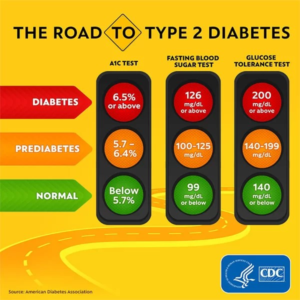“7 Easy Ways to Lower Fasting Blood Sugar Below 100—Naturally and Effectively!”
Overview
Lowering fasting blood sugar naturally involves adopting key lifestyle and dietary changes. These include regular exercise, managing carbohydrate and fat intake, ensuring quality sleep, and staying consistent with your diabetes treatment plan.
Fasting blood sugar—often measured in the morning—reflects glucose levels after 8 to 10 hours without food. If you’re experiencing unexpectedly high morning blood sugar, these strategies can help you address and manage it effectively.
Why Blood Sugar Spikes in the Morning
Ideally, fasting blood sugar should fall between 70 to 99 mg/dL if your diabetes is well-controlled. However, many individuals experience unexplained high blood sugar in the morning, often caused by the dawn phenomenon.
This occurs due to:
- Reduced insulin production at night (insulin regulates glucose).
- A natural increase in hormones like cortisol and glucagon before waking, which raises glucose levels to prepare the body for the day.
This combination causes hyperglycemia (high blood sugar) first thing in the morning. Below are proven strategies to manage this.
1. Change Your Exercise Routine
Exercise improves blood sugar control by enhancing insulin sensitivity—helping your body use insulin and glucose more efficiently.
- Evening Exercise: Light activity after dinner stabilizes blood sugar overnight.
- Morning Exercise: Moderate exercise before breakfast can lower morning glucose levels quickly and improve blood sugar control throughout the day.
Examples include:
- Walking
- Cycling
- Yoga
- Swimming
2. Try Apple Cider Vinegar
Apple cider vinegar (ACV) may offer short-term blood sugar control. A 2018 study showed that consuming 2 tablespoons (1,400 mg) of ACV lowered fasting blood sugar within 30 minutes. However, benefits were not sustained after 60 minutes.
Note: Long-term use of ACV can have side effects, such as:
- Tooth enamel erosion
- Throat irritation
- Low potassium levels
- Bone mineral loss
If you are taking medications, consult your healthcare provider about potential drug interactions.
3. Limit Carbs Before Bed
Carbohydrates are quickly converted into glucose by the body. Eating carbs late at night can spike blood sugar when insulin levels naturally decline.
Healthy nighttime snacks:
- Fresh fruit and vegetables
- Low-fat or fat-free yogurt
- Nonfat Greek yogurt
- Hard-boiled eggs
- Fat-free popcorn
- Apple slices with reduced-fat cheese
Tip: Monitor carb intake during dinner as well. The American Diabetes Association recommends:
- 45–60 grams of carbs per meal
- 15–20 grams per snack
4. Watch Your Fat Intake at Dinner
While healthy fats are essential, high-fat meals slow digestion and can delay glucose spikes until morning.
- “Good” fats (easier to digest):
- Avocados, nuts, olive oil, flaxseeds, oily fish (salmon, mackerel, tuna), chia seeds.
- “Bad” fats (harder to digest):
- Fatty meats, processed meats, fried foods, high-fat dairy, butter, baked goods.
Opting for plant-based fats can improve glucose control and overall health.
5. Prevent Nighttime Hypoglycemia
Nighttime hypoglycemia (low blood sugar) can trigger a rebound effect (Somogyi effect), where the body releases excess glucose in the morning.
Prevention tips:
- Never skip dinner.
- Check blood sugar before bed.
- Avoid alcohol and heavy nighttime exercise.
- Recognize early hypoglycemia symptoms.
Using a continuous glucose monitor (CGM) can help track blood sugar trends overnight.
6. Prioritize Quality Sleep
Poor sleep can disrupt your hormones, reduce insulin sensitivity, and lead to higher morning blood sugar. Sleep-deprived individuals with diabetes have been shown to experience:
- 23% higher glucose levels
- 48% higher insulin levels
Improving sleep:
- Keep your bedroom cool, dark, and quiet.
- Remove electronic devices.
- Establish a relaxing bedtime routine (e.g., reading, showering).
- Aim for at least 7 hours of sleep each night.
7. Follow Your Diabetes Management Plan
Consistently following your healthcare provider’s treatment plan is key to controlling blood sugar. This includes:
- Taking medications as prescribed.
- Monitoring blood sugar regularly.
- Eating balanced meals with appropriate carbs, proteins, and fats.
- Exercising regularly to maintain a healthy weight.
- Scheduling routine healthcare checkups.
- Refilling prescriptions on time to avoid missed doses.
Summary
High fasting blood sugar in the morning is a common issue, even for individuals with well-managed diabetes. By implementing lifestyle adjustments like regular exercise, avoiding nighttime carbs, limiting unhealthy fats, prioritizing sleep, and following your diabetes treatment plan, you can better manage morning blood sugar spikes naturally.
Apple cider vinegar may also help, but it should be used cautiously and under medical guidance.
